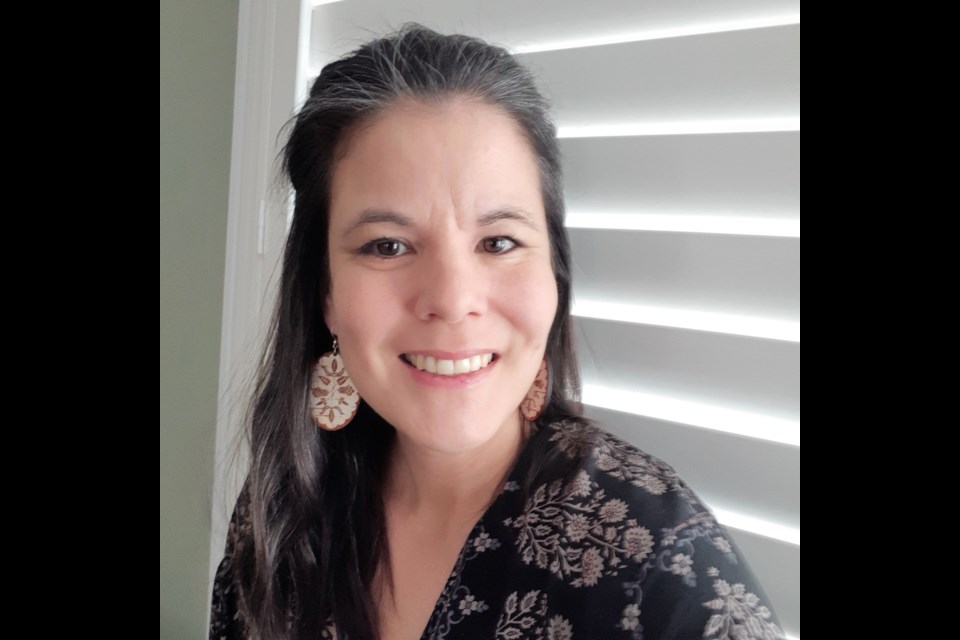For the next several weeks, this column will feature founding members of the new Unity Collective, a town-sanctioned group that aims to provide advice to council and the community on addressing systemic racism and diversity in Collingwood.
Jillian Morris is adding her Indigenous voice to the chorus of the Unity Collective.
For this week’s edition of People of Collingwood we spoke with Morris, 40, who is a member of the Unity Collective.
Q: For how long have you lived in Collingwood?
A: It’s coming up on five years.
Q: Where did you grow up before that?
A: Everywhere. (laughs)
I’m Mohawk, so I actually lived on reserve for a while during my childhood but my dad was also an Ontario Provincial Police officer, so we moved quite a bit.
I moved to Petawawa at one point because my sister’s husband was in the military. I lived there for 11 years. I met my husband there, who is also in the military.
We moved back to this area when he was posted to Base Borden.
When we were living in Angus near Borden, we spent a lot of weekends in Collingwood.
When he was medically released from the military we had to decide where to lay our roots. We liked it here. So, that’s why we moved to Collingwood.
Q: What do you do for work?
A: I am a freelancer. My work is heavily involved in diversity, Indigenous reclamation and life promotion.
We talk about suicide prevention but we like to flip that and refer to it as life promotion.
I (previously) worked for 13 years for the federal government with national defence and I was on their Indigenous advisory board. We were to advise on systemic issues. There were a lot of reasons why I left, but one was I was seeing the work really wasn’t going anywhere in that environment.
About half of my time is spent doing volunteer work, with groups such as Feather Carriers and the Unity Collective.
I also like supporting local events when they’re bringing awareness to Indigenous issues into communities.
Q: What led you to join the Unity Collective?
A: Tanya (Mazza, arts and culture co-ordinator with the town) reached out to me asking if I was interested, due to some other involvement I’ve had with the town.
It’s certainly in my wheelhouse.
Q: What unique experience do you hope to bring to the table?
A: This is kind of my world.
I can bring that Indigenous perspective. For me, I don’t know how many Indigenous people are in this town because I don’t see us until we have events. I’d like to see more Indigenous people brought in (to the Unity Collective).
It’s a weird feeling to be a minority in a minority group. (laughs)
For Indigenous people, the experience is so different. It’s such a unique experience from any other marginalized group.
The loss of culture, the loss of language... Indigenous people had to make a choice: do we protect our children or do we fight to continue our ceremonies and culture?
That division happened many years ago, and that division is still visible today.
That work has just expanded for me beyond Indigenous people. We need to realize we all come from the same biology.
Q: From your standpoint, what could Collingwood do better to address issues experienced by Indigenous people?
A: It is about visibility. Making these stories accessible and visible to the wider citizenship is important.
There’s opportunity in spaces where there are message boards and signage that can give a bit of information about... history that’s here.
I’m learning there’s a huge Black history in this town. We’re hearing a lot of those stories.
For me, even previous to that, Indigenous people were here. It is a place where we traded, on a trade route. Georgian Bay has a huge history with Indigenous people. That history isn’t known.
There’s been an erasure of marginalized history everywhere. That’s not unique to Collingwood.
It’s important to understand the land you’re living on. The history is powerful. To know those stories is to know your community better.
Q: Have you ever had any experiences locally where you’ve dealt with prejudice due to your Indigenous background?
A: Not overtly.
There are a lot of microaggressions. Those are harder to identify and harder to explain.
I do a lot of my work outside of Collingwood. I had said previously that I know people consider me white-passing. I think that kind of protects me in some way from overt racism. It’s unfortunate. It’s offensive for me sometimes for people to say that I’m white-passing.
It’s one of those passive things for people to say that.
Q: What are your hopes in the future for the Unity Collective?
A: The whole thing is so big. It’s hard to put it in the context of one town, or on a smaller scale because the issues are so broad.
I hope people in Collingwood understand that we’re here, and we have contributions that can be extremely valuable.
There’s so much potential to capitalize on that diversity. It brings people in. People are interested in seeing diversity and culture. There’s room for Collingwood as a tourist town to enhance that part of it.
It will ultimately bring better awareness.
Relationship-building is the foundation of so many things.
For our feature People of Collingwood, we’ll be speaking with interesting people who are either from or are contributing to the Collingwood community in some way, letting them tell their own stories in their own words. This feature will run on CollingwoodToday every Saturday. If you’d like to nominate or suggest someone to be featured in People of Collingwood, email [email protected].

